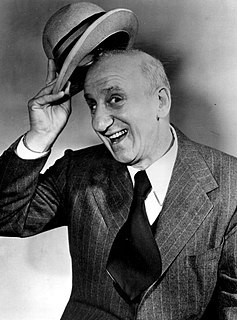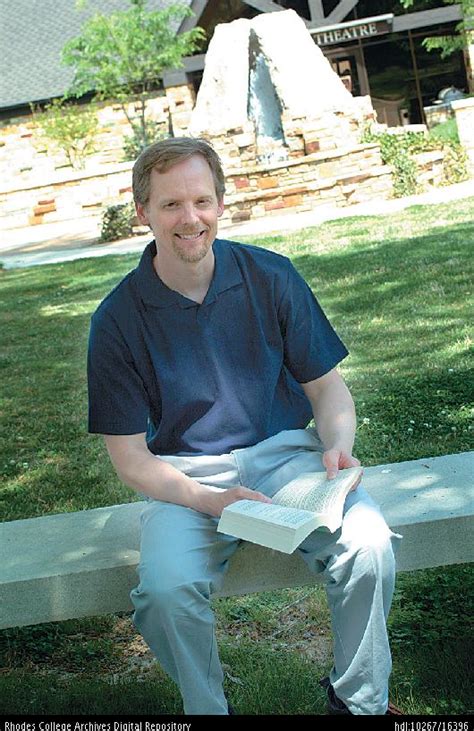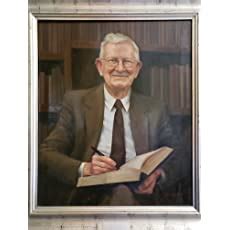A Quote by Maggie O'Farrell
We are all, Esme decides, just vessels through which identities pass: we are lent features, gestures, habits, then we hand them on. Nothing is our own. We begin in the world as anagrams of our antecedents.
Related Quotes
Any fitness expert will tell you that a strong core is the start to a strong and healthy body. The same is true with our identities. It's about strengthening our core, which requires digging past all of the surface identities that crowd our nametags and remembering that at the deepest level we are God's masterpiece. The stronger our knowledge of the core of who we are, the better we'll be able to deflect the old names and false identities that try to own us.
A false identity is any lie that contradicts our God-given identities through Scripture. These false identities can be created by ourselves because of sin in our lives, choices made, or wrong turns taken and the regret, guilt, and shame that follows. Other false identities are handed to us by outside sources, maybe a damaging word spoken to us by someone or a childhood of abuse. However, not all false identities are negative on the surface, such as successful, attractive, wealthy, athletic, or talented. But even those identities can become false when we place too much of our weight on them.
We must be ready to allow ourselves to be interrupted by God, who will thwart our plans and frustrate our ways time and again, even daily, by sending people across our path with their demands and requests. We can, then, pass them by, preoccupied with our important daily tasks, just as the priest-perhaps reading the Bible-passed by the man who had fallen among robbers. When we do that, we pass by the visible sign of the Cross raised in our lives to show us that God’s way, and not our own, is what counts.
Our conceptions of morality, as all our other ideas, pass through a course of development; the difficulty comes in adjusting our conduct, which has become hardened into customs and habits, to these changing moral conceptions. When this adjustment is not made, we suffer from the strain and indecision of believing one hypothesis and acting upon another.
The life of hope, then, is shot through with social influences at every level. We learn to formulate ideals in tandem with others. We pursue particular hopes, sometimes succeeding and sometimes failing, in the company of those we love. And as we develop habits of hope and the hopefulness which helps us weather our trials, we reach out to others, inspiring them, sharing our own hopes with them, and contributing our abilities as best we can to foster the growth of agency.
In a world in which we are exposed to more information, more options, more philosophies, more perspectives than ever before, in which we must choose the values by which we will live (rather than unquestioningly follow some tradition for no better reason than that our own parents did), we need to be willing to stand on our own judgment and trust our own intelligence-to look at the world through our own eyes-to chart our course and think through how to achieve the future we want, to commit ourselves to continuous questioning and learning-to be, in a word, self-responsible.
Freedom is always just one generation away from extinction. We don't pass it to our children in the bloodstream. We have to fight for it and protect it and then hand it to them, so that they shall do the same, or we're going to find ourselves spending our sunset years telling our children and our children's children, about a time in America, back in the day, when men and women were free.
Our dearest one. Fear nothing of the forest. There is no danger in solitude. We have no need of our brothers. Let us forget their good and our evil, let us forget all things save that we are together and that there is joy as a bond between us. Give us your hand. Look ahead. It is our own world, Golden One, a strange, unknown world, but our own.
When we cultivate mystical awareness or transcendent identity--which is a natural outgrowth of meditation and other practices--what happens is that we begin to take a witness position on our own lives, and that includes our minds. We break the illusion that we think our own thoughts, which is not always the case. Some ideas just arrive in our heads.
Any tear shed in sharing the heartbeat of God, any tear shed through Christlike loving empathy with our fellowmen, any tear born of the yearning constraint of the Holy Spirit is a tear by which we serve the Lord. Nothing pleases Christ more than for us to share with Him His burden for the world and its people. Nothing so weds us to the heart of Christ as our tears shed as we intercede for lost ones with Him. Then truly we become people after God's own heart. Then we begin to know what it is to be Christ's prayer partners.
It is hard living down the tempers we are born with. We all begin well, for in our youth there is nothing we are more intolerant of than our own sins writ large in others and we fight them fiercely in ourselves; but we grow old and we see that these our sins are of all sins the really harmless ones to own, nay that they give a charm to any character, and so our struggle with them dies away.
The systems of stereotypes may be the core of our personal tradition, the defenses of our position in society. They are an ordered more or less consistent picture of the world, to which our habits, our tastes, our capacities, our comforts and our hopes have adjusted themselves. They may not be a complete picture of the world, but they are a picture of a possible world to which we are adapted. In that world, people and things have their well-known places, and do certain expected things. We feel at home there. We fit in. We are members.






































